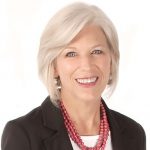Editor’s Message

*This is an article from the Summer 2021 issue of Contentment Magazine.
As summer 2021 unfolds we find ourselves still quite unsettled. While, gratefully, Covid cases and deaths are on the decline in many parts of the world, there are still major hurdles for full recovery. Globally we are still witnessing huge challenges and disparities, and we are still left with so many questions and a lot of emotions to process. This whole pandemic experience has tested each of us in different ways, traumatizing many, and making healing, gaining strength, and growth not a one-size-fits-all process.
What is clear is that in the face of uncertainty, constant change, and life disruption, we can find strength in humanity and strength within. Our personal relationship with stress and the challenges of life matters to our immunity, our resilience, and our physical and mental wellbeing… our contentment.
So many important lessons have emerged, and it will take some time to capture their wisdom in ways that serve us going forward. This learning process requires attention and intention. As you read through these articles, reflect on what has served you, what you learned about your strengths this last 18 months, what you have found matters most in your life, and what you would like to explore with curiosity as you emerge back into the world.
Jeff Jernigan, PhD, BCPPC, FAIS delivers another thoughtful piece looking at what he terms, “The Constellation Effect.” How do we move forward when what may be wrong is still a mystery? Our brains love certainty, cause and effect simplicity, but the complexities of human experience rarely line up so neatly. The perfect storm of this pandemic illustrates the interconnectedness of systems, from political/economic/healthcare complexities to the interplay of physical/mental/emotional/spiritual contributions to our health. Dr. Jernigan uses a case study to illustrate the process of teasing apart the constellation to design your strategy for healing.
While the wiring for the stress reaction is universal, the expression of distress takes many forms and can be difficult to measure, making it hard to know where to start to make a change. James Petersen, PhD, FAIS has developed a standardized and validated psychometric assessment based in the science of stress and with an impressive database. His Stress Mastery Questionnaire helps identify 7 different warning signs of stress, 2 scales of stressors, and 2 scales of stress effects. Dr. Petersen generously shares the scales he has found useful, allowing you to reflect on the roles stress is playing in your life, and what you might want to adjust to feel more contentment.
We welcome a new contributor, Sharon Montes, MD, FAIS, and her very practical advice on how to increase your vagal tone. Everyone knows the power of the sympathetic (flight, fight, freeze) system to rev you up in response to stress, but too little has been taught about invoking the power of the parasympathetic (rest and digest) system to calm and rebalance your physiology. Dr. Montes distills her wealth of integrative medicine wisdom into specific techniques you can do right now to increase your calm by activating your vagus nerve at the heart of the parasympathetic nervous system.
Jacinta M. Jiménez, PsyD, BCC, FAIS, is also a new contributor and an expert in burnout. One positive note from this past year is that as the stress and burnout rates have escalated, they have finally become safer topics to examine and discuss, even in the workplace. Learning how to recognize burnout and create tools to buffer against it will be critical as we move forward. Dr. Jiménez presents 3 steps to better recognize burnout, respond to it with practical steps, and build a pro-resilience toolkit to ensure you replenish yourself for your future. Arm yourself with a clear understanding of burnout and the choices that will buffer you and yours against it.
Jen Butler, MEd, BCC, DAIS takes a look at the complex and stress-ridden challenges of reopening offices. Leaders need to navigate change management while dealing with large loads of residual stress as well as the new stressors encountered in the opening process. She offers practical tips to clearly understand the sources of stress, define strategies to lead the changes, and enlist the art of persuasion, while complying with regulations. This is timely for many!
And lastly, Ron Rubenzer, EdD, MA, MPH, MSE, FAIS, thoughtfully examines the wisdom and resilience of aging. While the above 65 crowd (as he calls it, “The Rest of Us”) was statistically far more vulnerable to physical ravages of the pandemic, several studies picked up on their relative mental resilience. He discusses 6 benefits of the golden years and offers tips to handle some common challenges, such as memory loss.
May this edition help you capture some of your hard-earned wisdom and clarify how you can build more contentment into your future! Take care of YOU and each other…Cindi
Cynthia Ackrill, MD, PCC, FAIS
Editor
Contentment Magazine
The dictionary defines “content” as being in a state of peaceful happiness. The AIS magazine is called Contentment because we want all of our guests and members to find contentment in their lives by learning about stress management and finding what works best for each them. Stress is unavoidable, and comes in many shapes and sizes that makes being in a state of peaceful happiness seem like a very lofty goal. But happiness is easy to find once you are able to find ways to manage your stress and keep a healthy perspective when going though difficult times in life. You will always have stress, but stress does not always have you!
